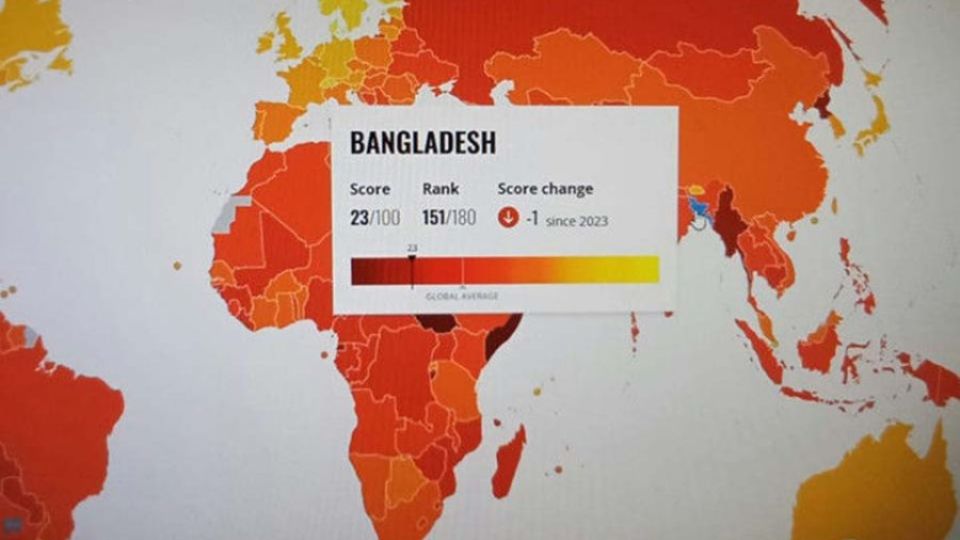February 13, 2025
DHAKA – It comes as no surprise that Bangladesh has once again performed dismally in Transparency International’s (TI) latest ranking. But that doesn’t make it any less painful, or alarming, for the global anti-graft body’s corruption index—based on perceptions though it may be—paints a real picture of governance failures with deleterious effects for citizens. According to the 2024 index released on Tuesday, Bangladesh ranks 151st among 180 countries or territories, scoring just 23 out of 100—its lowest in 13 years. Seen from the bottom, it ranks 14th, making it the second lowest in South Asia and the fifth lowest in the Asia-Pacific region. This confirms that corruption remains as pervasive as ever, underscoring both the failure of the ousted Awami League regime and the inability of the interim government to break the cycle.
As the executive director of TI Bangladesh has noted, the data period for CPI 2024 coincided with the peak of kleptocratic authoritarianism in Bangladesh, during which corruption was not just tolerated but actively promoted and protected through political and governance mechanisms. Public sector corruption, particularly in public contracting and project implementation, worsened as state institutions responsible for tackling graft—such as the Anti-Corruption Commission (ACC), law enforcement, and the judiciary—were politicised and rendered ineffective. Restrictions on free media, civic space, and dissent may have further contributed to Bangladesh’s poor ranking.
Unfortunately, corruption has persisted even after the fall of the Awami League government midway through the CPI data period, with reports of continued extortion, abuse of power, and turf wars over lucrative corruption networks. Despite initial promises, the interim government has failed to take decisive action to dismantle these networks or reform the entrenched culture of corruption and mismanagement within the civil service. This is further underscored by a recent survey by the Public Administration Reform Commission that reveals widespread public dissatisfaction: 80 percent of respondents, for example, believe the administration is not public-friendly, 66 percent say civil servants behave like “rulers,” 42 percent think obtaining services is impossible without paying bribes, and 46 percent report facing harassment when seeking services.
The question is, why is a non-political government born out of a popular uprising failing to turn this situation around? While crucial reform measures currently remain under discussion, one persistent obstacle to better performance has been the turmoil and non-cooperation within the bureaucracy, with reports of officials resisting reform efforts. This must be addressed with an iron hand. The recommendations from TIB also warrant serious consideration, particularly making the ACC truly independent and empowered to hold high-level individuals accountable and depoliticising state institutions to ensure professional integrity. Without such reforms, Bangladesh will remain trapped in the same vicious cycle of corruption and misgovernance.


